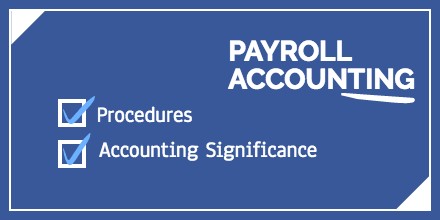What is GST?
The RajyaSabha has cleared a constitutional amendment to bring out a system of Goods and Services Tax (GST) in India. It is perhaps the most important economic reform on the NarendraModi government’s agenda. This is one reform which affects all of us.
Goods & Services Tax is a complicated, comprehensive, multi-stage, destination-based tax that will be levied on every value addition. Goods and Services Tax will be levied on all transactions happening during the entire manufacturing chain.
Earlier, when a product was manufactured, there would be an Excise Duty on the manufacture, and then the state would add a VAT tax when the item is sold to the next stage in the cycle. Then there would be a VAT at the next point of sale. The process has changed in the GST regime. Now, Goods and Services Tax will be levied at every point of sale.
Importance of GST
GST plays a significant role in redefining the current tax structure and thus the economy. Currently, the Indian tax structure is divided into Direct and Indirect Taxes. Direct Taxes are levied where the liability cannot be passed on to someone else. In the case of Indirect Taxes, the liability of the tax can be passed on. One can explain the impact of cascading taxes with an example. For example X sells goods to Y after charging sales tax, and then Y re-sells those goods to Z after charging the same tax. In this case while Y was computing its sales tax liability, it also included the sales tax paid on previous purchase, which is how it becomes a tax on tax. This is also referred to as taxes on taxes. This is where the need for GST arises to do away with the phenomenon.
Once the new regime is implemented, harassment of businesses by different authorities will end, and India will have one rate for one commodity throughout the country.
Four GST bills
With clear road map laid down by the Finance Ministry, the Government seems on course to fast track the entire process to achieve targeted GST implementation effective 1 July 2017.
On 12 April 2017, the Central Government enacted four GST Bills.
Integrated GST (IGST)
Bill to Compensate States
Central GST (CGST)
Union Territory GST (UTGST)
Indirect taxes that will be included under GST –
State taxes
VAT/Sales Tax
Entertainment Tax (unless it is levied by local bodies)
Luxury Tax
Taxes on lottery, betting and gambling.
State Cess and surcharges in so far as they relate to supply of goods and services.
Entry tax not on in lieu of Octroi.
Central Taxes
Central Excise Duty.
Additional Excise Duty.
The Excise Duty levied under the medical and Toiletries Preparation Act
Service Tax.
Additional Customs Duty, commonly known as countervailing Duty (CVD)
Special Additional duty of customs
Surcharges
The above taxes dissolve under GST; instead all of these, only CGST & SGST exist.
Impact of GST on different Industries
Food Industry
The sales even under the GST regime would largely remain exempt due to small business registration threshold. Food has an exemption from CENVAT and 4% VAT, the GST under a single rate would lead to doubling of the tax burden on food.
Financial Services
India has followed the approach of bringing virtually all financial services within the ambit of tax where the consideration is in the form of an explicit fee. In most of the countries GST is not charged on Financialservices.
Pharma Industry
This sector generally has an inverted duty structure i.e. excise duty on raw material is around 12.5% whereas on finished goods it is around 6-7%, which thus leads to accumulation of refund dues from government. With GST, the Pharma sector is hopeful of making refund process fast and simple, this coupled with savings in warehousing and logistics cost may thus anticipate a positive impact.
Transportation Industry
The Road Transport and Highway ministry is considering an overhaul of around 80 border check posts across the country to ensure seamless flow of goods under the GST regime. Thus, it would be very beneficial for the transportation industry with higher moving time of wheels and lower transit time which will certainly boost the business, reduce inventory holding requirements, transportations cost and better utilization of assets.
Real Estate Industry
Sale or transfer of immovable property is outside the purview of GST, however, on procurement of materials for civil construction GST will be applicable and ITC of the same wouldn’t be admissible. This may impact negatively. Hopefully, this issue will be addressed appropriately while declaring the final law.
FMCG Sector
FMCG has seen a consistent growth in the past three – four years.When the GST will be passed and on the opening of FDI, the consumer will have a positive impact on this sector. At the same time, FMCG companies will save on logistics costs.
For more information on Goods and services tax, feel free to reach us on, info@gapeseedconsulting.com or call +91-9599444639/+91-9599444630
Read More:
Excerpts from GST Council’s 8th Meeting










